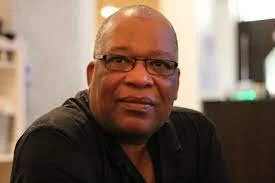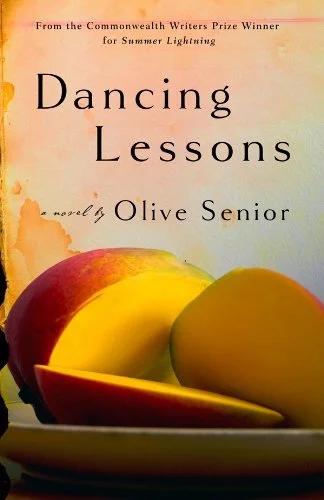Waiting For a Star to Fall: Kerry Clare's Contemporary Take on a Tale as Old as Time
Waiting For a Star to Fall:
Kerry Clare’s Contemporary Take on a Tale as Old as Time
Kerry Clare is best known as the author of Mitzi Bytes (2017), her brilliant adult adaptation of the children’s classic, Harriet the Spy. She is also editor of the popular anthology The M Word: Conversations About Motherhood (2014). With her long-running blog Pickle Me This and her role as editor at the book website 49thShelf.com, Clare has emerged as an influential voice in Canadian letters. Her latest novel, Waiting for a Star to Fall is a cautionary tale perfect for this Me-Too moment. But it is also a timeless story about an impressionable young woman, Brooke, who falls in love with an older man. When her lover, a high-profile politician, is implicated in a sex scandal, Brooke realizes her trust in him is misplaced.
DBN: What made you want to write this novel?
KC: I was curious about a young woman who would get herself into this situation. I wanted to explore what she would be like, what it would feel like to love someone who had done something awful. I wanted to unpack that person’s character, as I have never been in that position.
DBN: Tell me about Brooke. What is it about her that makes her vulnerable to her boss?
KC: I think she’s really young, in her early 20s. I feel that one day she will wake up and realize she didn’t have as much agency as she thought she had.
DBN: Can we talk about the man Brooke falls in love with? Derek is a smart, good-looking, charismatic politician. It’s not hard to see why Brooke might fall for him notwithstanding his reputation with young women.
KC: I wanted to make Derek somewhat sympathetic. I could have had a crush on him myself. I didn’t want to make him a monster.
DBN: Brooke admits that she is drawn to Derek’s power. His attentions make her special. Interesting, as she is an exceptionally intelligent woman who might make an excellent politician herself.
KC: Brooke does see Derek as a feather in her cap. She knows she can get something from him. On the other hand, it is hard for her to see how she could get the power she wants for herself. Derek is her route.
At the same time, Derek knows the kind of woman who will respond to his charms. A woman who might see herself as powerful might tell him where to go. Brooke is in his thrall. I think she does have some agency. But she is also being manipulated. It’s not equal. There is a power imbalance and that makes it wrong.
DBN: I appreciate your nuanced exploration of the subject. Were you worried at all about readers’ reactions?
KC: There is ambiguity in the book. One reader got upset because they said I was sympathizing with Derek and another reader complained that I had vilified him. It’s easy to say this person is bad and this person is good. That’s comforting. But the reality is more complicated.
DBN: Throughout the novel we catch glimpses of Derek’s personal life. His high school friends have barely evolved. He is well into his 30s, and he still parties ‘til all hours and drinks to the point of passing out. Derek seems to suffer from the Peter Pan syndrome.
KC: Men don’t always have to grow up. They can really be rewarded for childish pursuits. Someone, like Elon Musk, for example. The things men love when they are little children are huge industries. I mean what if hopscotch become a major industry. I heard a comedian say that once.
DBN: Waiting for a Star to Fall is a serious book: There is a devastating end to a relationship, the implosion of a political career, depression, sexual assault. Yet, as in your previous novel, Mitzi Bytes, you exert a light touch. I laughed out loud many times. There is one scene, however, that is so dark and despicable I had to put the book down.
KC: Yes. I know the scene. I was very proud of it. I complicated Brooke and Derek’s dynamic and gave the reader a sense of what Derek is capable of. I remember writing that scene in a coffee shop, so long ago…
DBN: You paint an extraordinary portrait of Derek’s mother.
KC: I loved his mother. His mother has an awakening about him. That almost never happens. I’ve read about women who are in their son’s corner no matter what. The idea that a mother might consider her son has done something wrong - I’m not sure that happens as often as it should. Women are sometimes complicit in ways they don’t intend. Even Brooke perpetuates the idea of Derek as a good person.
DBN: The story is told from Brooke’s perspective. But we do discern the trajectory of Derek’s career through newspaper and magazine articles inserted into the text. Why did you decide to use this technique?
KC: I really like novels that have lots of letters and layers and kinds of text. That interests me. Inserting articles was a way to give the bigger picture. I was also poking a bit of fun at small town newspapers, like Peterborough’s. (Clare’s hometown).
I also wanted to write about the way the media glorifies perfectly ordinary men. Ordinary men get made into mythical figures. I mean men who are not even interesting! And it is usually men writing the story. And then we wonder why mediocre people develop an exaggerated sense of themselves!
DBN: The importance of community and schools comes up in this novel and in your previous novel as well. It is something Brooke and Derek talk about.
KC: There is a story I want to tell. It’s all I can do. And at the same time, it is everything. It’s an insistence on a world where public schools matter and teachers matter. I think Derek would like to be that person who really acts on these kinds of community issues. But he can’t be that person. He’s too consumed by glittery things and popularity. But he is attracted to that person in Brooke.
DBN: I read somewhere that you admire the author Jennifer Weiner, author of In Her Shoes, which is such a wonderful story.
KC: I love commercial fiction like Jennifer Weiner’s because I love reading for pleasure. It feels good. It’s absorbing. I enjoy a book I can sit on a beach and read in a single sitting. I really love bookstores. But I also love the fact that you can buy a book at Shopper’s Drug Mart. The fact that you can buy it with your shampoo.
I want to mention my editor Bhavna Chauhan. I learned so much from her. She loves commercial fiction. She knows what it can do. Commercial fiction is not a pejorative term.
DBN: You have some wonderful lines in this book, about character and about writing your own script.
KC: Oh yes. Near the end of the book when Brooke and her friend Lauren are watching Dirty Dancing she comes to understand that a woman can write her own script. The scene reminds me of something Erica Jong writes in a later introduction to Fear of Flying about a woman who falls but doesn’t have to be fallen. I keep writing that story over and over again.
I had an abortion when I was 23. It was 10 years before I was able to talk about it. And reading Fear of Flying was everything that I needed to keep going. It’s a story about a woman who messes up and doesn’t die and isn’t a disgrace.
DBN: You dedicate the novel to every woman who was ever 23. A note of compassion, perhaps, to your younger self?
KC: Yes. I want people to know there are more chances in life than we are often taught, and I think that is such a gift.
I interviewed Kerry Clare by telephone on May 6, 2021. Clare is already hard at work on her next novel. It is a story about the friendship of two women across three decades called Asking For a Friend.







